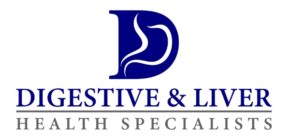A GUIDE FOR LIVING A GLUTEN-FREE LIFESTYLE

Digestive and Liver Health Specialists strives to provide our patients with comprehensive knowledge about gastroenterology conditions. In this post, we will focus on celiac disease - a digestive condition affecting the small intestine that requires dietary changes for maintaining health. Let’s dive in and gain more insight into this disorder!
What Is Celiac Disease? Celiac disease is an autoimmune condition that primarily impacts the small intestine. When individuals living with celiac consume gluten - found in wheat, barley and rye - their immune systems react by damaging the gut lining, in turn leading to nutritional deficiencies as well as other health complications over time.
CELIAC DISEASE SYMPTOMS
Celiac disease can manifest with various symptoms, including:
- Digestive Issues: You may experience abdominal pain, bloating, diarrhea, constipation and nausea.
- Weight Loss and Poor Growth in Children: Celiac disease can result in reduced growth rates as well as difficulty gaining weight for children.
- Fatigue and Weakness: Individuals living with celiac disease frequently report fatigue, weakness and an overall lack of energy.
- Dermatitis Herpetiformis: Skin rashes can appear at any time and should be taken seriously as they can represent deeper underlying issues.
- Anemia: Celiac disease may result in iron deficiency anemia, causing fatigue and weakness.
DIAGNOSIS AND SYMPTOMS
If celiac disease is suspected, your provider at Digestive and Liver Health Specialists will run several tests, including blood tests for antibodies as well as an intestinal biopsies to assess for damage. Self-diagnosing with gluten-free diets could skew accurate test results.
Celiac disease can be managed through a gluten-free diet. This requires eliminating all food products containing wheat, barley and rye. Fortunately there are now numerous gluten-free alternatives widely available for patients. With proper education and support, living a gluten-free lifestyle can be manageable.
LIVING WITH CELIAC DISEASE
Living with celiac disease requires thorough food label reading and awareness of hidden sources of gluten. Here are some strategies for managing it effectively:
- Engage With Gluten-Free Foods: When considering gluten-free options, focus on naturally gluten-free options like fruits, vegetables, lean proteins and gluten-free grains such as quinoa or rice.
- Be Wary of Cross-Contamination: Avoid cross-contamination by using separate utensils, cutting boards and toasters when handling gluten-free food items.
- Inform Family and Friends: Educate family and friends about celiac disease to ensure they recognize its significance in food preparation.
- Join Support Groups: Reaching out to others managing celiac disease is important when trying to live successfully with celiac. Local and online support groups offer great ways of connecting.
Celiac disease is a lifelong condition that requires adhering to a gluten-free diet for proper management. If you suspect you might have celiac disease or are experiencing related symptoms, seeking guidance and diagnosis from one of our providers is essential to proper management. At Digestive and Liver Health Specialists, our team of dedicated experts offer support and knowledge needed to manage celiac disease effectively while living a healthier lifestyle that's free from gluten.
Always remain informed and take mindful steps on your gluten-free journey - be mindful, stay informed, and feel empowered about living life to the fullest!

